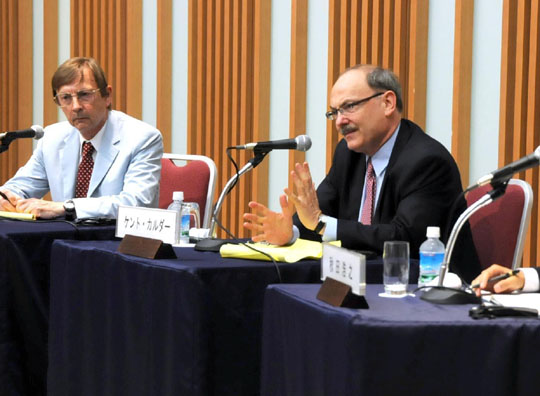Japan-U.S. relations are at a turning point and the Futenma base dispute — which has strained bilateral ties since the Democratic Party of Japan took power a year ago — is also symbolic of the broader and longer-term changes that affect the alliance, American experts said at a recent seminar in Tokyo.
It looks as if both countries were operating on autopilot without making sufficient efforts to keep up the "high-maintenance" alliance, the experts said, calling for a strategic dialogue between the two countries to set the vision on the future of the bilateral relationship.
"A lot of people would just say Futenma, Futenma, Futenma, and they would say suddenly we are unable to solve the problems that we have, and for that reason this is a turning point (in Japan-U.S. relations). I do think it's a turning point, but for a different and broader set of reasons," Kent Calder, director of the Edwin O. Reischauer Center for East Asian Studies at the School of Advanced Studies (SAIS) at Johns Hopkins University, said at the Aug. 27 seminar organized by the Keizai Koho Center.



















With your current subscription plan you can comment on stories. However, before writing your first comment, please create a display name in the Profile section of your subscriber account page.